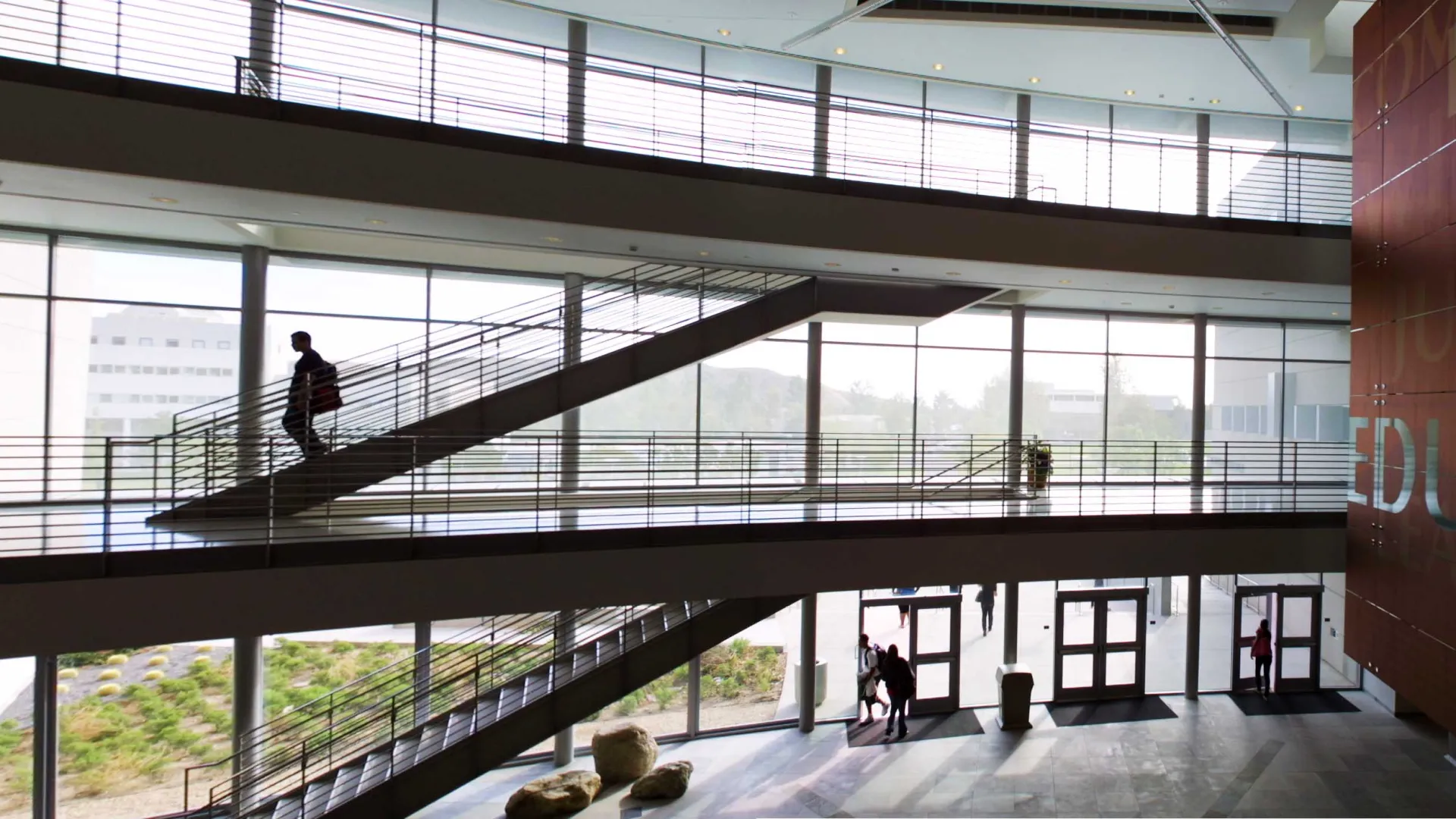Joe Gutierrez | CSUSB Office of Strategic Communication | (951) 236-4522 | joeg@csusb.edu

Cal State San Bernardino has been designated as an R2 university by the Carnegie Classification of Institutions of Higher Education (CCIHE) in recognition of its development from a master’s level-comprehensive university to one that awards research/scholarship doctorates.
“This is great and well-deserved news,” said CSUSB President Tomás D. Morales. “The new designation as an R2 reflects the dedication and determination of our faculty, staff and administrators to develop and offer programs and research opportunities to benefit and advance our students as they pursue their educational goals and dreams, and ultimately help them advance in their careers.”
Dorota Huizinga, the associate provost for research and dean of graduate studies, said, “The Research 2 designation indicates that CSUSB students are receiving significant involvement, engagement, and hands-on experience in research and scholarship with our professors, all of whom are favorably active in their respective fields and have high levels of expertise.”
The Research 2 designation places CSUSB among the top 7% of colleges and universities in the nation from the ranking of 3,900 colleges and universities and the classification of 137 as R1 and 133 as R2.
The CSUSB College of Education (COE), which houses the university’s only doctoral program, played a key role in helping to elevate CSUSB's status from one of the region's top institutions of higher education to one of the nation’s top research and teaching universities.
COE Dean Chinaka S. DomNwachukwu wrote in a congratulatory statement, “The longtime efforts and intentionality of the Ed.D. Program in Educational Leadership, its past and present directors, campus administrators and staff, community advisory board and partners, with respected, renown, award-winning program faculty and fellows uncompromisingly committed to student success, have all helped shift the needle.”
“Please join me in congratulating our doctoral leadership team and the entire doctoral faculty for helping to put our university in the limelight,” wrote DomNwachukwu. “The COE doctoral program already has a track record of high-quality graduates. The past two years have been spent on program quality enhancement expanding our influence through CPED and the AACTE Holmes Scholars programs. We are glad that we are already seeing the results.”
In a joint statement from the faculty and fellows of the CSUSB Doctor of Education in Educational Leadership Program wrote, “This designation is an important recognition and validates the research produced by our Ed.D. scholar-practitioners and campus community, particularly as our program is framed around equity, ethics, and social justice. For the entire university, an R2 status can now play a more augmented role in its ability to recruit diverse talent, not only in the classroom, with students and faculty, but also staff and administrators. This R2 status also invites additional campus collaborations with industry leaders throughout the inland region and Southern California.”
The joint statement by 20 core faculty, 19 affiliated faculty, and 26 program fellows of the Ed.D. program continued, “Attending, teaching, working, leading, and serving our Inland Empire community as an institution is a designation too important to fade into the background. We appreciate the dedication of all those who collaborated to make this designation a reality."
The CSUSB Doctoral Leadership Team is currently comprised of COE faculty members, co-directors Enrique Murillo and Sharon Brown-Welty, and COE staff members Catherine Snow and Audrey Baca Lopez.
“The Doctor of Education in Educational Leadership is a program framed around questions of equity, ethics, and social justice to bring about solutions to complex problems of practice. The program is designed to prepare educational leaders with the knowledge base and skills to lead reform efforts that result in improved student outcomes and educational transformation, particularly for our Inland Empire region,” said Murillo. “This 3-year cohort-based program meets the needs of full-time professionals in the field of education, either PreK-12 or Community College/Higher Education careers.”
In 2006, the California Legislature made an exception to the Master Plan for Higher Education (1960) and allowed California State Universities to offer the Doctorate in Education (EdD) degree (California Education Code, Section 66040 (a). Cal State San Bernardino was among the early CSUs to offer the Ed.D. Program and it was designed to be offered in three years (3) with interdisciplinary faculty and also with teaching partnerships including representatives from California Pre-K-12 schools and community colleges/higher education. To date, the program has admitted 15 cohorts of students with more than 120 total graduates to date.
The R2 designation includes institutions that conferred at least 20 research/scholarship doctorates and reported a minimum of $5 million dollars of total research expenditures through the National Science Foundation Higher Education Research and Development (NSF HERD) Survey.
CSUSB met the new classification criteria by awarding 21 doctoral degrees and having over $10.8 million in research expenditures in fiscal year 2019-20, said Huizinga.
The new designation also elevates CSUSB’s status to a “national university” from a “regional university” in rankings such as U.S. News & World Report, Huizinga said. Cal State San Bernardino is one of seven CSU campuses to be classified for 2021 in the Doctoral Universities: High Research Activity category. The other campuses are Cal State East Bay, Fresno State, Cal State Fullerton, Long Beach State, San Francisco State and San Diego State.
The Carnegie Classification has been the leading framework for recognizing and describing institutional diversity in higher education across the United States for more than four decades. This framework has been widely used in the study of higher education, both to represent and account for institutional differences, as well as in the design of research studies to ensure adequate representation of sampled institutions, students or faculty.